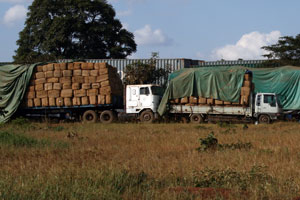JTI criticizes WHO positions on trade

The World Health Organization (WHO) Framework Convention on Tobacco Control (FCTC) Secretariat’s reports on trade and the settlement of disputes are “veiled attempts at empire building,” according to Japan Tobacco International.
“The Convention Secretariat has manufactured a conflict with international trade and investment agreements by pretending they are obstacles to the implementation of the FCTC,” JTI wrote in a press release.
“It distorts international trade and investment law in order to justify its attempts to exclude tobacco from trade agreements, and establish its own dispute settlement mechanism to deliberate on trade; a clear attempt to reach beyond the FCTC’s mandate and competence.”
JTI insists no such conflict exists, as FCTC parties are fully able to implement the treaty while complying with their obligations under international trade and investment agreements.
“Yet, at the seventh session of the Conference of Parties (COP7) taking place in Greater Noida, India this week, the FCTC Secretariat will go beyond its remit by attempting to dictate to countries how their international trade and investment agreements should be written,” the press note said
“At the global level, the World Trade Organization (WTO) is the sole competent organization for negotiating multilateral trade agreements and discussing how trade is conducted for all legally traded products, including tobacco,” said Geir Ulle, international trade director at JTI.
According to JTI, the FCTC Secretariat continues to recommend a flawed policy of excluding tobacco products and tobacco control measures from trade and investment agreements.
“Yet there is no evidence that such a policy will necessarily have public health benefits. Instead, it would create a negative precedent for ‘carving out’ other consumer products from the international trading system in the future. This will lead only to arbitrary and ineffective government over-regulation,” JTI wrote.
“International trade and investment facilitates economic growth, which leads to reduced poverty and higher living standards,” said Ulle.
“Tobacco farmers in countries like Brazil—the largest tobacco exporter in the world—could be adversely impacted by the interference of the FCTC Secretariat. This is further proof that faceless bureaucrats employed by the WHO are not apt to meddle in international trade and investment issues. They fail to see the far-reaching and detrimental consequences of their proposals, which are not suited to improve public health.”
